This week we brought the normally invisible microscopic world to life at Alquería and this was no exception in the English department.
We began our odyssey by learning basic vocabulary related to cells in English. Then, we learned how to talk about the five types of microorganisms in English (algae, fungi, bacteria, viruses and protozoa). With the help of a diagram, students named the parts of the microscope and realized how much of the world we can’t appreciate without it.
Is microscopic life helpful or harmful for humans and the world? We addressed this question learning the names of both «bad» microorganisms and the symptoms they cause in humans (such as sore throats, ear aches, athlete’s food, colds, and parasites) and «good» microorganisms that help us (such as phytoplankton making oxygen, algae making blue cheese delicious, penicillin curing our illnesses, and wonderful yogurt.)
To help us really assimilate all this information, we played different games and did different activities to review. One of the most popular games was «spreading the virus» by shaking hands or giving high fives with glitter!
In Year 5 and Year 6, we also discussed the GERM THEORY and learned about the first scientists who proposed the existence of microorganisms, and pointed to them as the cause of disease in the world.
To that end, we learned about famous microbiologists as Year 6 prepared «autobiographies» for the visit to our «Living Museum» on Thursday. All the students in primary were able to listen to living statues speak about their accomplishments in the field of microbiology.
El pase de diapositivas requiere JavaScript.
Have a lovely, restful weekend after so much activity in this special week!
Lindley and Manolo
Esta semana le dimos vida al mundo microscópico que es normalmente invisible en Alquería, y esto no fue la excepción en el departamento de inglés.
Comenzamos nuestra odisea aprendiendo vocabulario básico relacionado con las células en inglés. Luego, aprendimos a nombrar los cinco tipos de microorganismos en inglés (algas, hongos, bacterias, virus y protozoos). Usando un diagrama, los estudiantes nombraron las partes del microscopio dándose cuenta de todos los microorganismos que no se podría apreciar si no lo tuviéramos.
¿La vida microscópica es útil o dañina para los humanos y el mundo? Abordamos esta pregunta aprendiendo los nombres de los microorganismos «malos» y los síntomas que causan en los humanos (como dolor de garganta, dolor de oído, pie de atleta, resfriados y parásitos) y los microorganismos «buenos» que nos ayudan (como la producción de fitoplancton, oxígeno, algas que hacen delicioso el queso azul, penicilina que cura nuestras enfermedades y maravilloso yogur).
Para ayudarnos a asimilar realmente toda esta información, jugamos diferentes juegos realizando diferentes actividades para repasar. ¡Uno de los juegos más populares fue «propagar el virus» dando la mano o chocando con purpurina!
En Year 5 y Year 6, también vimos videos sobre la TEORÍA DE LOS GERMENES y aprendimos información de los primeros científicos que propusieron la existencia de microorganismos y los señalaron como la causa de la enfermedad en el mundo.
Y por último en sexto, aprendimos sobre microbiólogos famosos para preparar «autobiografías» para la visita a nuestro «Museo Vivo» el jueves. Todos los alumnos y alumnas de primaria pudieron “escuchar” a las estatuas vivientes hablar sobre sus logros en el campo de la microbiología.


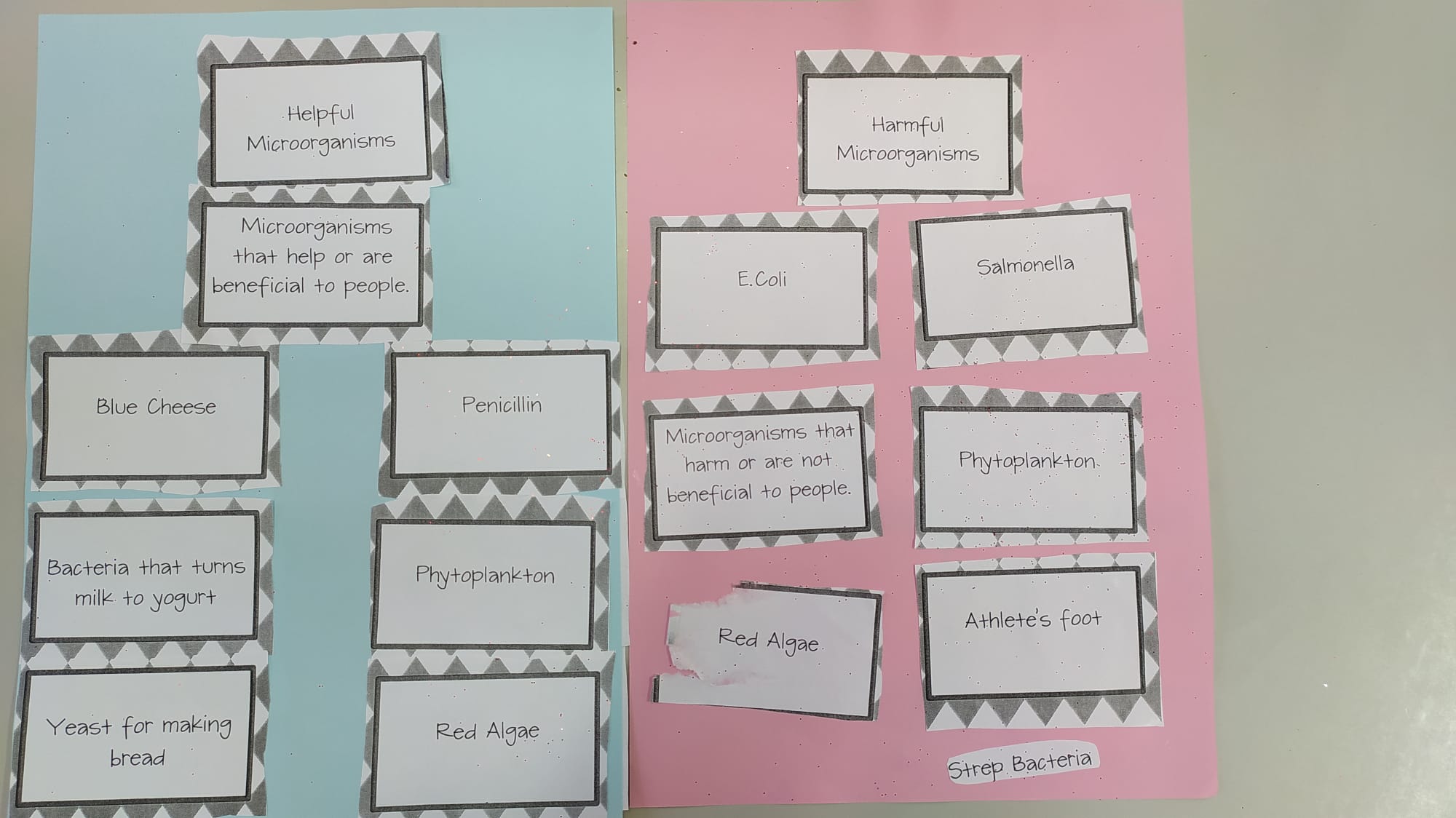
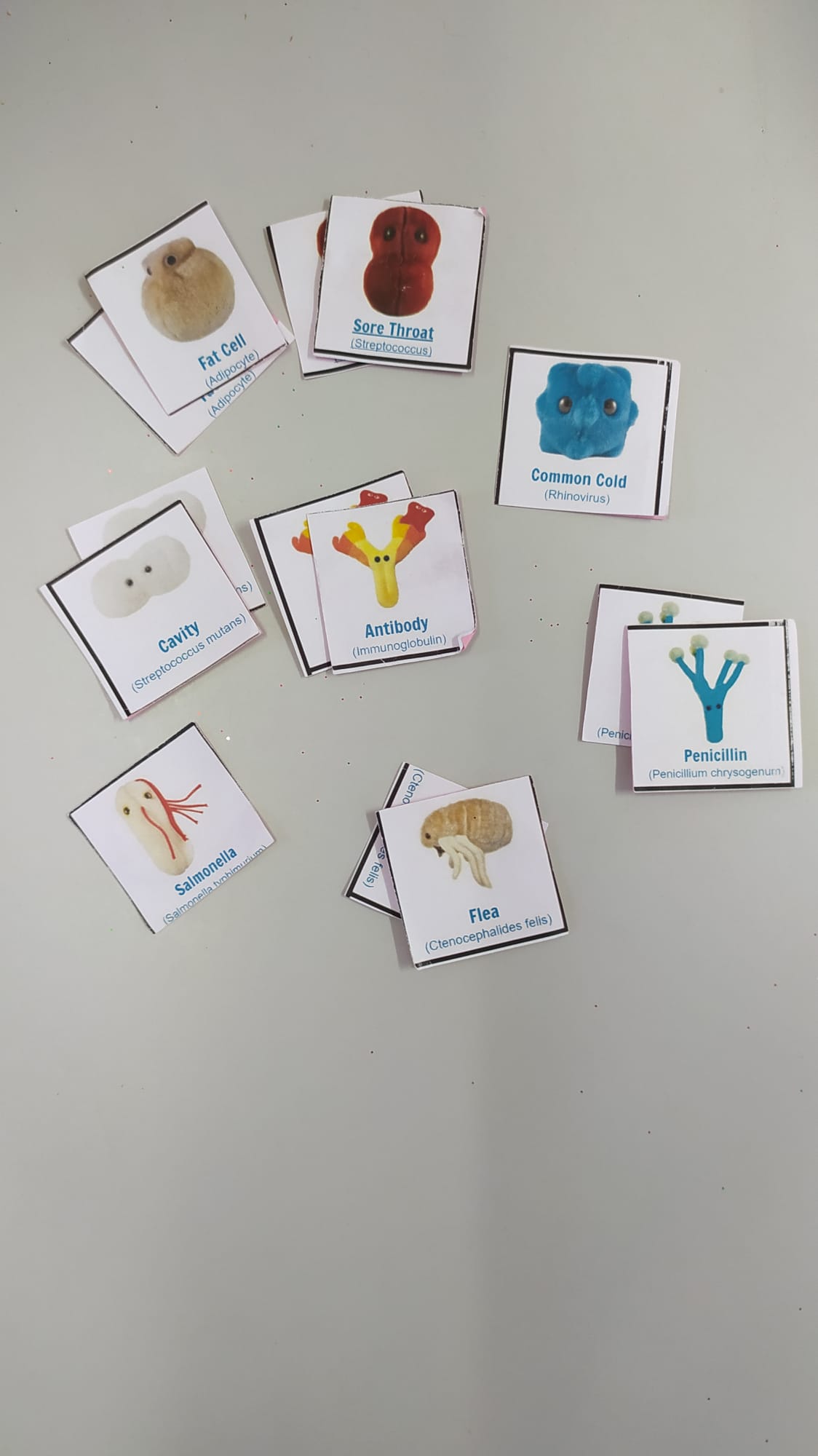
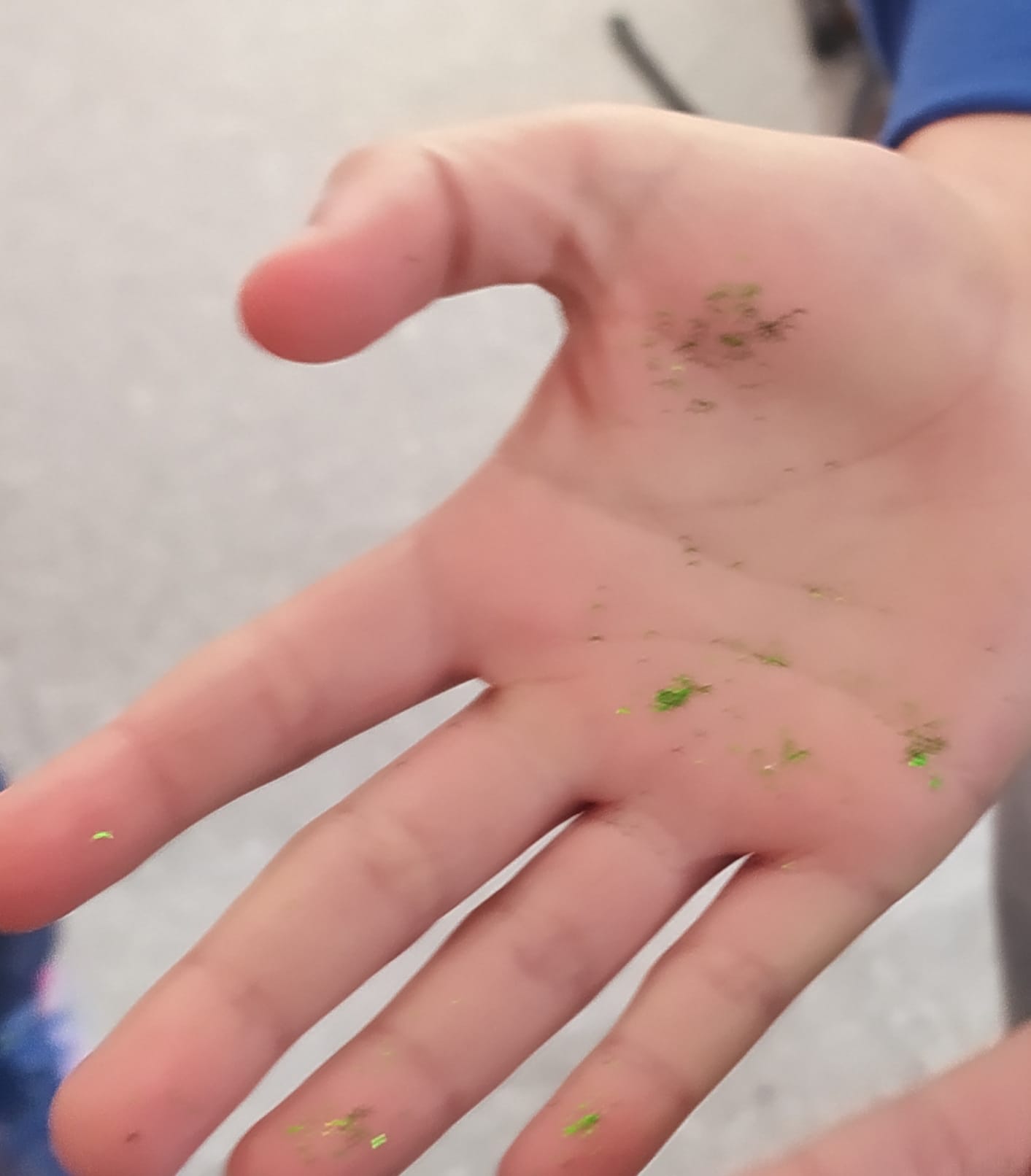
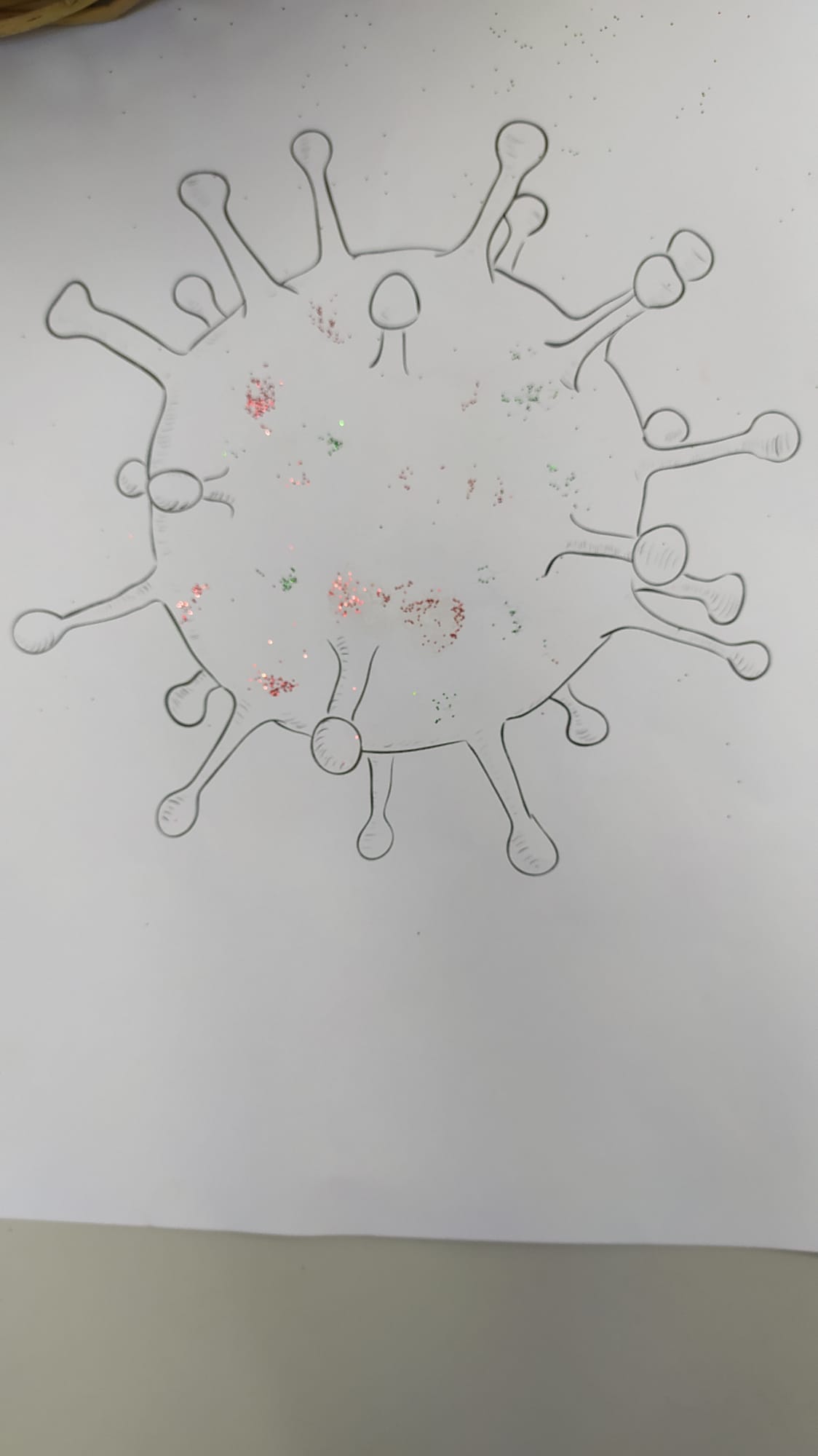
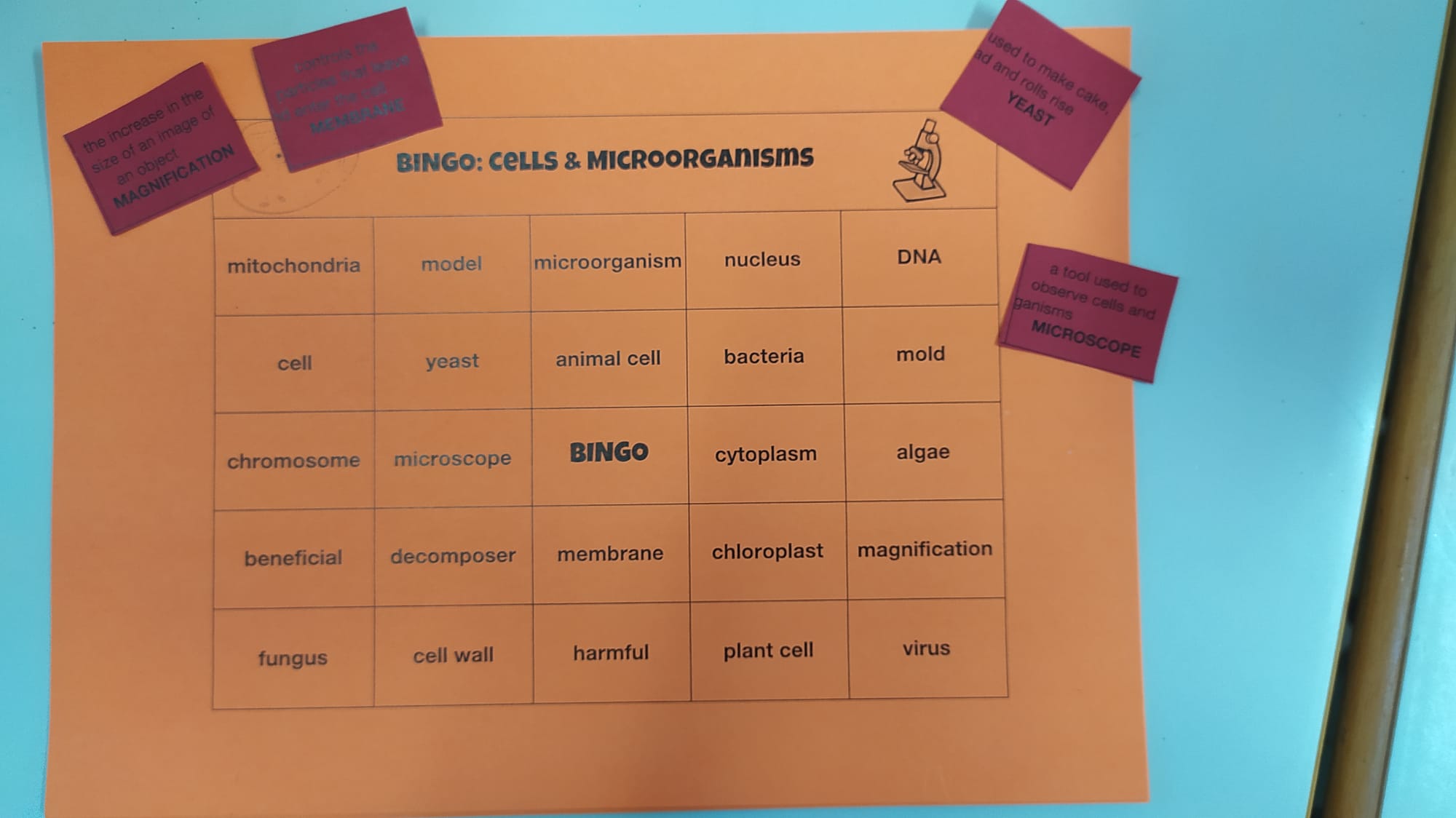
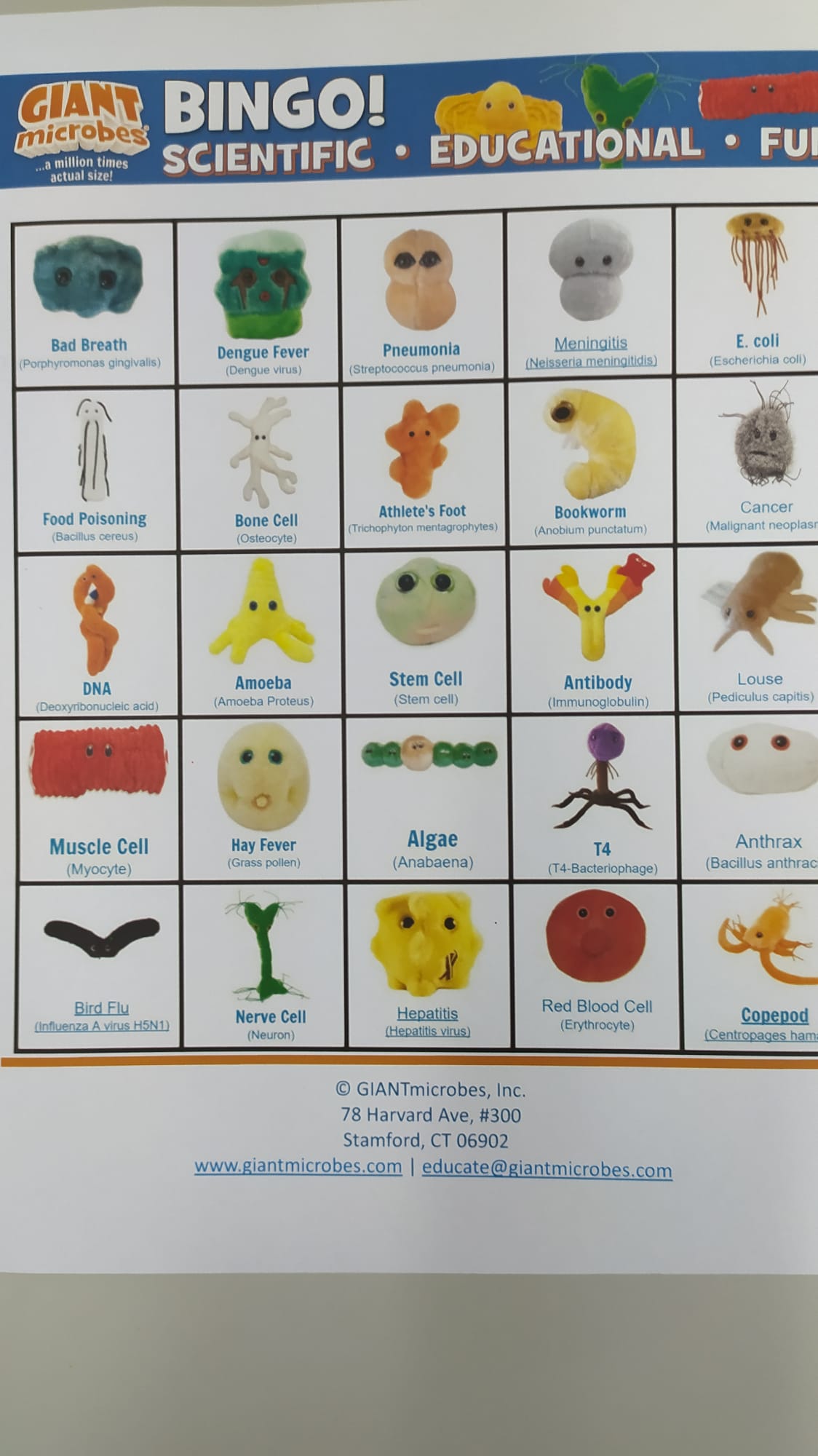
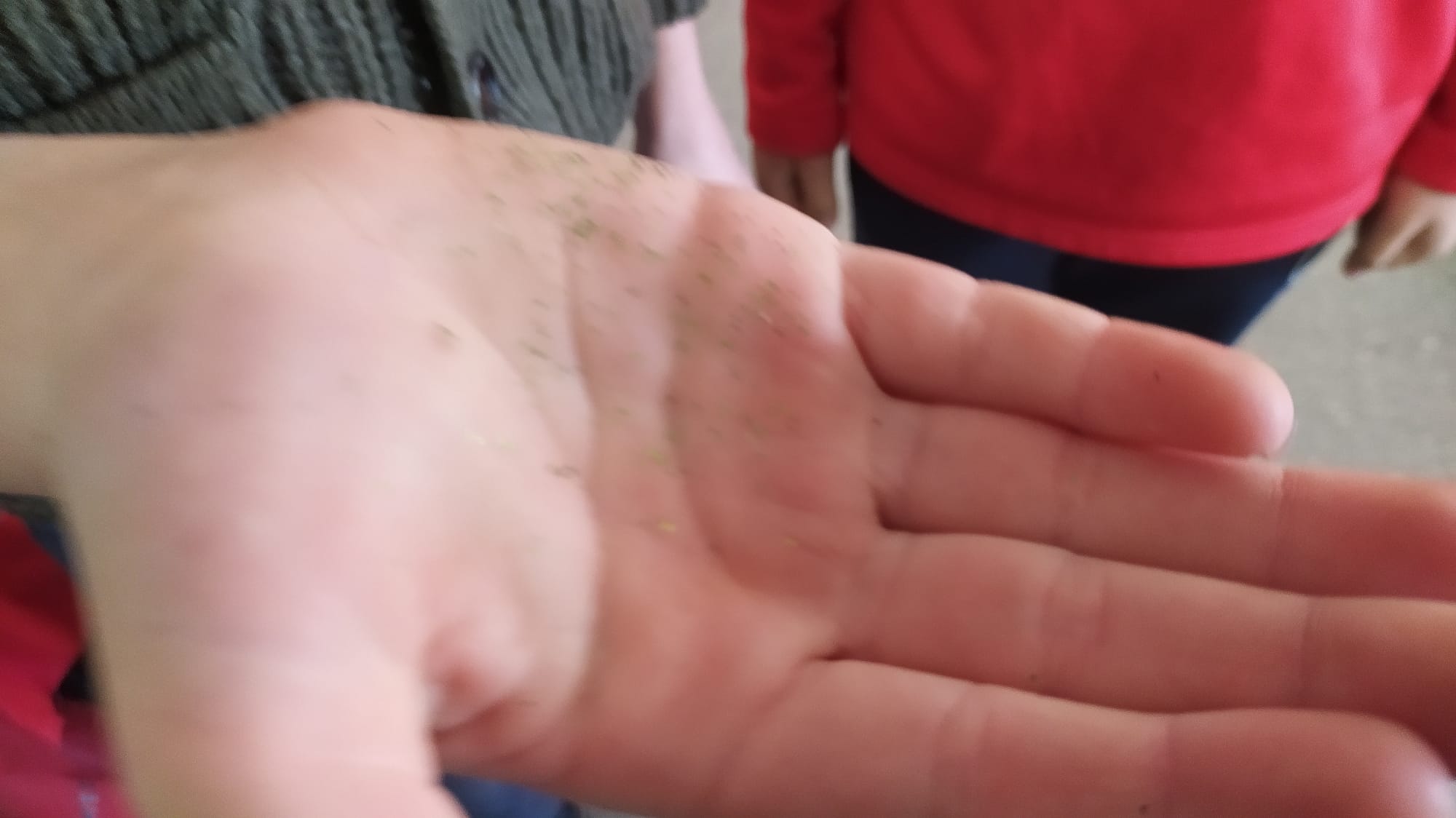
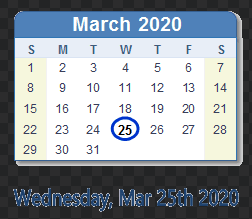 _______________________________________
_______________________________________